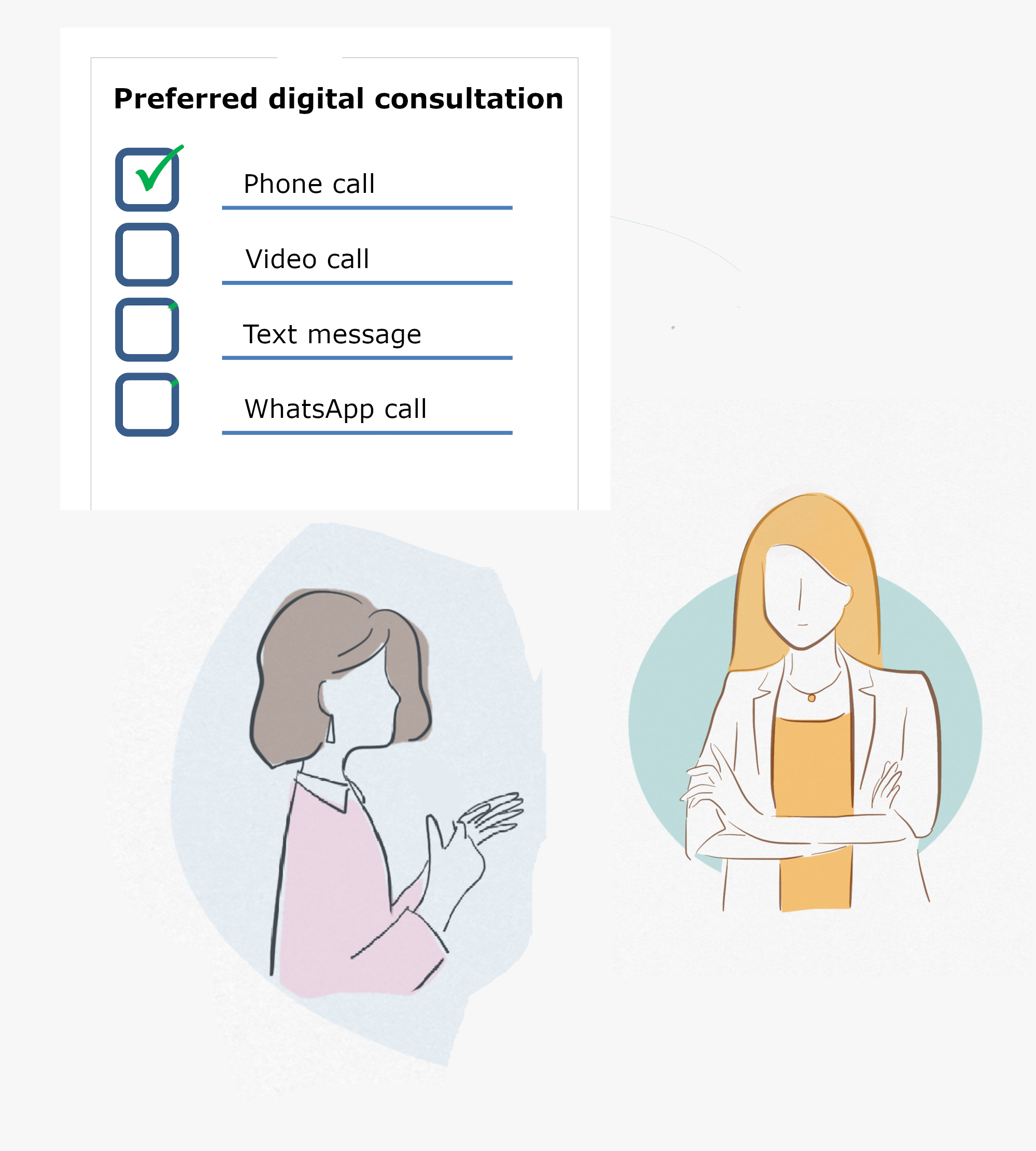5. CORE-O-Optimising Consultations for Personalisation, Preferences and Flexibility
Now lets look at this scenario:
A woman and her midwife are talking over the phone - they have previously had face to face consultations.
In this scenario you can see how digital clinical consultations can provide options for flexibility and personalisation of care in situations where physical examinations or investigations are not essential. This has may benefits for both women and their healthcare professional including:
- Providing a flexible approach to consultation modality can help women to feel more in control of their care.
- and digital clinical consultations can help women to fit their maternity care into busy lives and can reduce the time, stress and cost of needing to travel to appointments or of having to arrange child care. These factors may be particularly the case for women who need frequent appointments (e.g. to monitor glucose or blood pressure levels) or who live far away from the health centre.
However, women's preferences around digital clinical consultations can vary a great deal so it is important to consider the following points:
- It is important to ask women what kind of consultation (e.g. phone or video) would work best for them and to offer them choice.
- The initial antenatal 'booking' appointment is an ideal time to assess women's preferences. These preferences should be documented.
- Women's preferences and clinical needs may change however, so it is good practice to revisit consultation choices and options on a regular basis, using your professional judgement.
- Where possible, digital clinical consultations should be booked into a specific time slot, so that women can ensure they are free and able to focus properly on the call.
So the 'O' in the CORE model reminds us to optimise the digital clinical consultation for personal preferences and flexibility.
